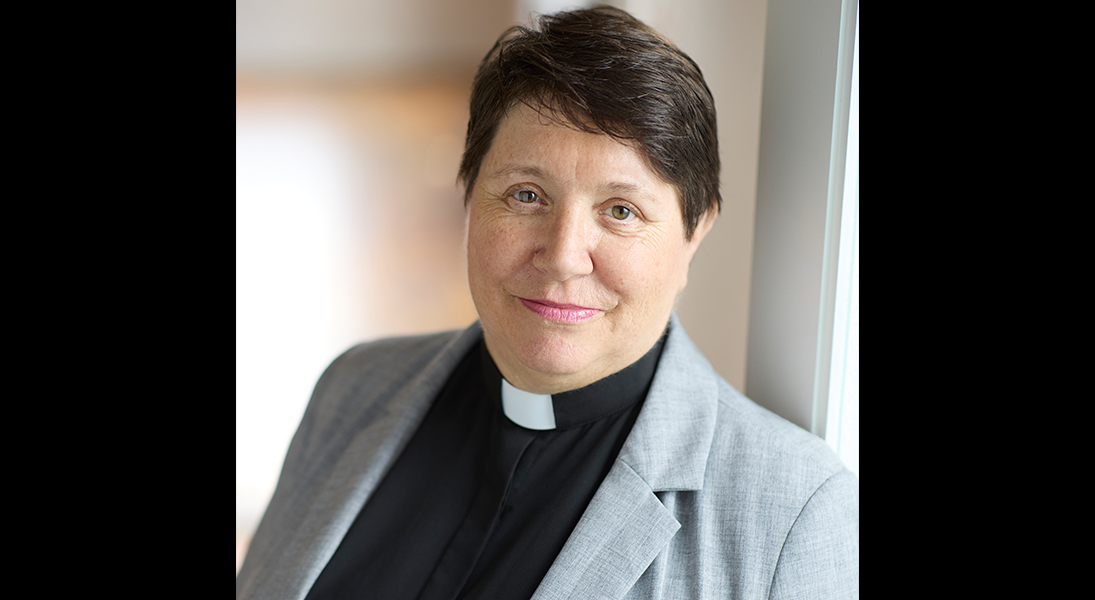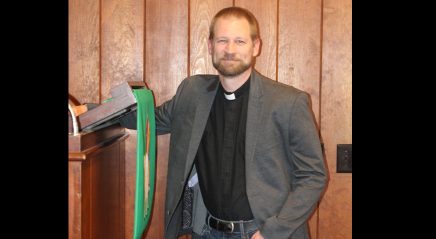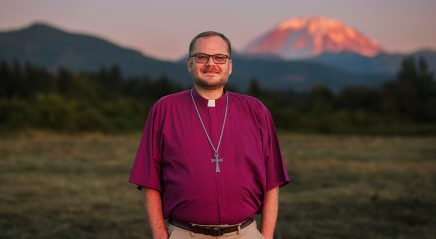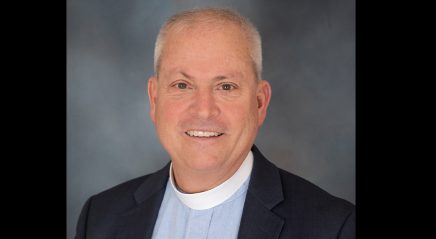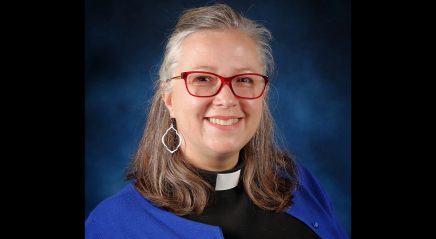Elected June 7 as bishop of the Central States Synod, Donna Simon understands the importance of supporting lay leaders who do the challenging work of understanding and living out what it means to be the church.
Simon, who has served as pastor of St. Mark Hope and Peace Lutheran Church in Kansas City, Mo., since 2000 and as director for evangelical mission with the Central States Synod since 2016, shared with Living Lutheran about her vision for moving closer to the reality of a faith community “of one heart and soul.” She will take office Sept. 1 and be installed Sept. 28.
Living Lutheran: What do you see as the biggest priorities for the synod?
Simon: My first priority for our synod is ensuring that each of our congregations and ministries has excellent leadership. In the first year of my term, we will develop a plan for raising up leaders—lay and rostered—for the future of the church. Along with our colleagues in Region 4, we will address the need for a robust program for educating and equipping lay ministers for the church and work to ensure that every potential rostered leader who wishes to be trained for ministry has an unimpeded path to candidacy.
A vital second priority is to speak boldly about God’s call for justice and peace in all the earth. Our country and world are deeply divided on issues about which Jesus was clear: love of neighbor—all neighbors, even the Samaritans who live across borders—care for the vulnerable, and even the purpose and place of the church in society. Our congregations must be places of welcome for all people, proclaiming a gospel of love for neighbor, lived out in tangible commitments to feed those who are hungry, shelter those who are unhoused and advocate for those whose dignity and personhood are threatened.
How did you feel when you were elected?
In the moment, I felt stunned, then excited, proud and daunted by the task ahead. This is a challenging time in the life of the church. We’re going to need to learn together how to meet the moment. Fortunately, challenging moments are when God’s best work is done. I’m eager to get to work!
What experiences in your ministry do you feel have best prepared you to serve as bishop?
I entered ministry at a time when the ELCA was still in discernment about the place of LGBTQIA+ persons in the church. When I came out as a lesbian in candidacy in 1995, I knew the road to ministry would be challenging. We had not yet embarked on the period of study that led to the 2009 Churchwide Assembly decisions around ordination and blessing of same-gender unions. Thanks be to God for the work of the Extraordinary Candidacy Project, which provided an alternative route to ordained ministry and supported our congregation.
When I was ordained, our congregation was censured by the synod for calling a pastor not on the ELCA roster. We worked hard to stay in relationship with our synod siblings, always attending assembly and other synod meetings and communicating with the synod office and our neighboring congregations. I learned that, while institutions require time to adjust to cultural shifts, the people of God are often more open to learning a new language of welcome. Twenty-five years later, we continue to break open the possibilities for including and speaking in solidarity with the marginalized populations within our synod borders, particularly our immigrant and transgender communities.
We are also a politically diverse synod, like so many of our ELCA synods. I have endeavored to listen to divergent opinions and will certainly continue to do so as bishop. I want to be the bishop of this whole synod, and I know that will require humility on my part, even as I hold to the vision of justice that we claim as a mission. The Bible does not always speak with one voice, and it is important for us to dig into the proclamation of Scripture and the church together. Jesus was willing to do that work with his disciples and the crowds that followed them; why wouldn’t we do it together now?
Is there anything else you’d like to share with the church?
I’m well aware of the enormity of the responsibilities I’ve accepted, but I’m wildly excited about this opportunity in ways that surprise even me. I know that the Holy Spirit is moving in our synod. I see that movement in congregations large and small. As more laypeople are activated for ministry, our church moves closer to the reality of that first church Luke wrote about: “Now the whole group of those who believed were of one heart and soul” (Acts 4:32). I’ve seen our synod grow in love, in welcome for all people and in passion for the gospel of Jesus Christ.
A few years ago, the ELCA Congregational Vitality team described vital congregations and ministries as “communities of Jesus that nurture life-changing relationships with God, one another and the world.” I know our congregations are following Jesus and working to nurture relationship with God and others. I will do all that I can as bishop to support our communities in following Jesus toward love, welcome and justice. The future depends upon our ability to do that well.



